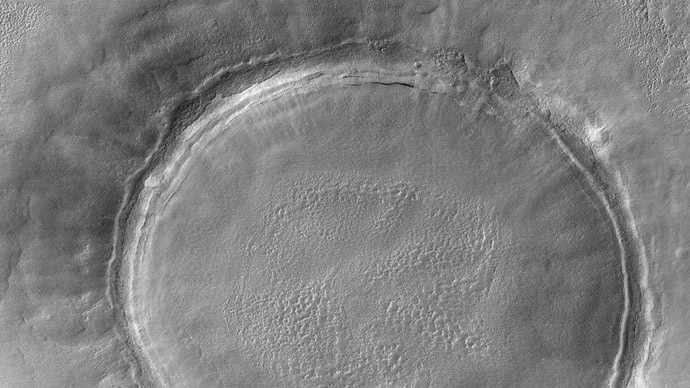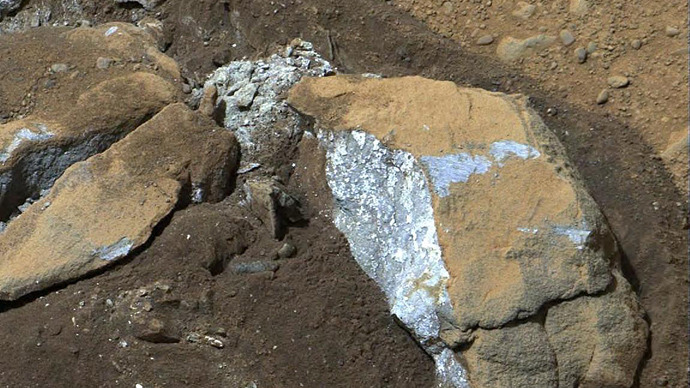There used to be an ocean on Mars about 3 billion years ago and its remains can still be observed, Russian scientists say.
“Our studies have shown that an ocean existed in the Utopia
Planitia region on the Red Planet,” Mikhail Ivanov from Space
Research Institute of the Russian Academy of Sciences told
ITAR-TASS news agency.
The glaciation of the ocean began during the Hesperian Period,
which lasted on Mars about 3.5 – 2.9 billion years ago, the
planetologist said.
“At that time, according to our hypothesis, the planet had
constant hydrosphere and in the Utopia Planitia region there was
an ocean, which was a rounded basin of impact origin,” he
explained.
According to Ivanov, the evidence, which proves the existence of
an ocean on Mars, are the huge muddy whirls in the Utopia
Planitia, distinctive terrain and readings obtained from research
vehicles.
The Utopia Planitia is the largest recognized impact basin –
formed by a collision with another celestial body – in the solar
system, with an estimated diameter of 3,300km.
The Hesperian Period is also characterized by the appearance of
lava fields, which began covering with ice, and that might’ve
caused the glaciation of the Martian ocean, he added.
The scientist also said that there are reasons to believe that a
biosphere existed on the Red Planet during the period as
formations similar to fossilized remains of microorganisms were
discovered in three meteorites of Martian origin.
In June, NASA’s Opportunity rover discovered traces of water on
the Red Planet, confirming earlier finding by the Curiosity
research vehicle.
The robot analyzed clay like formation on the Martian surface,
which could only be formed in the presence of a large amount of
water, which the US researchers described as neutral and nearly
fresh.
But the US rovers are still unable to discover methane gas on
Mars, which would prove that life used to exist on the planet.


